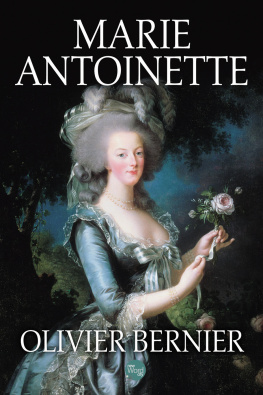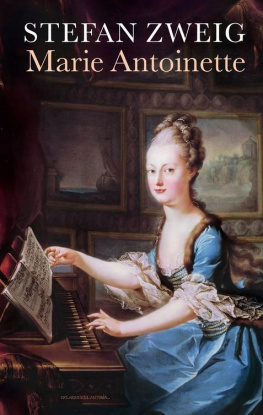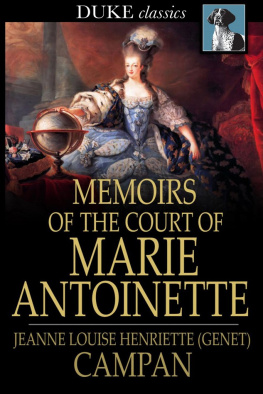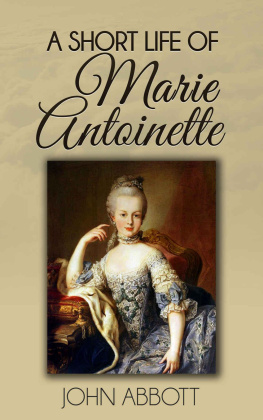First published 2011 by Ashgate Publishing
Published 2016 by Routledge
2 Park Square, Milton Park, Abingdon, Oxon OX14 4RN
711 Third Avenue, New York, NY 10017, USA
Routledge is an imprint of the Taylor & Francis Group, an informa business
Copyright Nadine Brenguier 2011
Nadine Brenguier has asserted her right under the Copyright, Designs and Patents Act, 1988, to be identified as the author of this work.
All rights reserved. No part of this book may be reprinted or reproduced or utilised in any form or by any electronic, mechanical, or other means, now known or hereafter invented, including photocopying and recording, or in any information storage or retrieval system, without permission in writing from the publishers.
Notice:
Product or corporate names may be trademarks or registered trademarks, and are used only for identification and explanation without intent to infringe.
British Library Cataloguing in Publication Data
Brenguier, Nadine.
Conduct books for girls in Enlightenment France.
1. French literature 18th century History and criticism. 2. Girls in literature. 3. Young women in literature. 4. Girls Books and reading France History 18th century. 5. Young women Books and reading France History 18th century. 6. Girls Education France History 18th century. 7. Young women Education France History 18th century. 8. Girls France Conduct of life History 18th century. 9. Young women France Conduct of life History 18th century.
I. Title
840.93522-dc22
Library of Congress Cataloging-in-Publication Data
Brenguier, Nadine.
Conduct books for girls in enlightenment France / by Nadine Berenguier.
p. cm.
Includes bibliographical references and index.
ISBN 978-0-7546-6875-6 (hardback: alk. paper) ISBN 978-1-3155-7334-2 (ebook)
1. French literature18th centuryHistory and criticism. 2. Girls in literature. 3. Young women in literature. 4. GirlsBooks and readingFranceHistory18th century. 5. Young womenBooks and readingFranceHistory18th century. 6. GirlsEducationFranceHistory18th century. 7. Young womenEducationFranceHistory18th century. 8. GirlsFranceConduct of lifeHistory18th century. 9. Young womenFranceConduct of lifeHistory18th century. I. Title.
PQ265.B47 2011
840.93522dc22
2010037652
ISBN 9780754668756 (hbk)
ISBN 9781315573342 (ebk)
ISBN 9781317162308 (ebk-ePUB)
Acknowledgments
It takes a village to raise a family, and it also takes a village to write a book. The act of writing is solitary, but it is also the result of a dialogue with professional and personal friends. I would like to express my gratitude to my colleagues in the field of eighteenth-century studies in the United States and in Europe who have supported my work in many ways throughout the years. I have gained much from reading their books and articles as well as from our conversations and collaborations during professional meetings. Many of them generously answered the queries that I sent on the Society for Eighteenth-Century French Studies electronic list. I extend my thanks to Daniel Brewer, Andrew Brown, Elizabeth Goldsmith, Dena Goodman, Isabelle Havelange, Julie Hayes, Katharine Jensen, Huguette Krief, Marie-Paule Laden, Suzanne Pucci, Christie McDonald, Antoinette Sol, and Lesley Walker.
I have also benefited from the hospitality of those who invited me to present my work over the years: Heidi Bostic, Isabelle Brouard-Arends and Marie-Emmanuelle Plagnol, Bill Burgwinkle and Neil Kenny, Batrice Durand, Jacques Domenech, Jonathan Mallinson, Ourida Mostefai, Laurine Quetin, Nancy Ruttenburg, Pierre Saint-Amand, Lieselotte Steinbrgge, Suzanne van Dijk, Janie Vanpe, and Colette Wynn.
I am also grateful to my wonderful colleagues at the University of New Hampshire, Barbara Armstrong, Amy Boylan, Barbara Cooper, Marco Dorfsman, Piero Garofalo, Claire-Hlne Gaudissart, Holly Harris, Lori Hopkins, Claire-Lise Malarte-Feldman, Mary Rhiel, Juliette Rogers, Anna Standstrom, and Emilie Talpin, for creating a most supportive atmosphere. Their good humor and friendly encouragements were essential during the whole writing process and particularly during periods of doubt.
I have benefited enormously from the backing of the University of New Hampshire, which helped in many ways to complete the project. The Center for the Humanities provided me with generous grants that made two semesters of leave possible; I received grants from the Center for International Education for travel to France and was awarded several Faculty Development Grants for research. I am also indebted to the National Endowment for the Humanities and the Camargo Foundation for the research fellowships that enabled me to make progress on this project in its initial phase.
Portions of the book are drawn from the following articles: The Politics of Happy Matrimony: Cerfvols La Gamologie ou lducation des filles destines au mariage,Studies in Eighteenth-Century Culture, 29 (1999): 179207 and Lambert, Puisieux, Leprince de Beaumont, Epinay and the Legacy of their Educational Manuals in the Nineteenth Century, Studies on Voltaire and the Eighteenth Century (2007:06): 179207. My gratitude goes to the editors of both journals for permission to include this work in the book.
My heartfelt thanks to Jacques Saint-Antonin, a genealogist who, after discovering my interest for Abb Joseph Reyre, helped me generously and with great expertise at all stages of my research on this particular conduct-book author. I am also very grateful to Dona Geyer, whose careful proofreading resulted in a much better written manuscript. At Ashgate, Ann Donahue was very patient with my frequent questions, and I thank her for her dedication.
As I was working on this manuscript and considering girls coming of age more than 200 years ago, my own daughters, Julia and Hlosenames not unfamiliar to Enlightenment scholarswere growing up and getting ready to enter the adult world. Through their questions, thoughts, and actions they offered a wonderful living counterpart to my intellectual endeavor. They have made me realize what has changed and what is still the same in the life of girls as they move into adulthood.
Finally, I dedicate this book to my husband, Bernd Widdig, dearest friend and insightful critic, who, reluctantly at first but with surprising dedication, has become an expert in his own right on eighteenth-century conduct books.
Nadine Brenguier
Cambridge, Massachusetts








